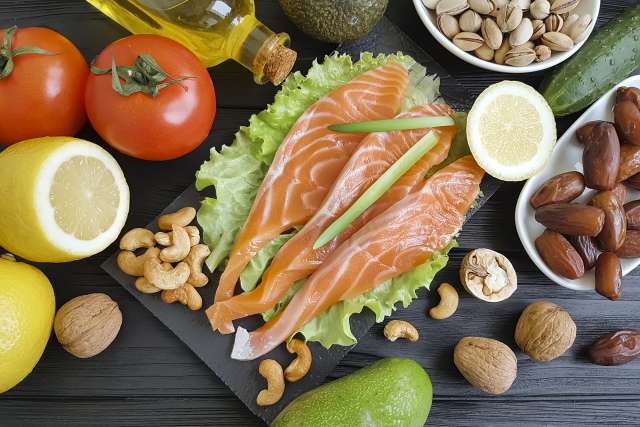Conceiving a baby can take time — only 30% of couples get pregnant in the first month of trying. One in four couples may still be trying after a year.
While no diet can fix medical issues affecting fertility, certain foods support the reproductive system better than others. They contain antioxidants and nutrients that enhance ovulation or improve sperm quality and quantity. For the best results, get both partners on board — infertility involves a male issue 50% of the time.
Best foods for fertility
The best path to robust fertility is maintaining a healthy weight and eating a balanced diet. But you may be able to give your fertility a boost by including these foods:
Walnuts
Walnuts are an easy-to-eat food that boosts ovulation and keeps sperm healthy. They are rich in omega-3 fatty acids, which increase your likelihood of conceiving. Walnuts also contain vitamin E, an antioxidant that helps increase sperm count and motility (movement).
One study focusing specifically on walnuts and male fertility found eating just one handful (about 42 grams) of walnuts daily for three months produced healthier sperm. Semen samples of participants who ate walnuts yielded a higher concentration of active sperm than previous samples.
Tomatoes
Tomatoes are a good source of vitamins A and C. But they also contain lycopene, the phytochemical that gives many red fruits and vegetables their color. Lycopene is known to improve sperm count and movement.
To get the most lycopene from your tomatoes, cook them. While the heat may decrease the amount of vitamin C in tomatoes, it boosts the lycopene content — and the nutritional value. Heating tomatoes for just two minutes (to a temperature of 190.4 degrees Fahrenheit) increases the lycopene by 54%. After 25 minutes, the lycopene rises by 75%. As a bonus, your body absorbs lycopene better from cooked tomatoes than from fresh.
If you can’t eat cooked tomatoes, other forms still provide a good amount of lycopene. Choose fresh tomatoes, sundried tomatoes or tomato paste. But be aware of tomato paste’s naturally high sugar content and look for products that don’t contain added sugar.
Citrus fruits
Citrus fruits are full of vitamin C, another antioxidant shown to positively affect sperm. They are also high in polyamines — compounds critical to the reproductive process for both males and females.
The best citrus fruit sources of polyamines include:
- Grapefruit
- Lemons
- Oranges
- Tangerines
Full-fat dairy
There are no guidelines about how much dairy to consume if you are trying to conceive. But for females, there is evidence connecting full-fat dairy products to a lower risk of ovulatory infertility, which occurs when you can’t produce eggs or release them regularly.
Full-fat dairy is an excellent source of vitamins A, E and D. Cheeses also contain high levels of polyamines, with hard cheeses and raw milk cheeses such as Parmigiano-Reggiano, camembert and asiago having the highest amounts.
Beans and lentils
Don’t look past beans and lentils if you’re looking for fertility-boosting power. They are good sources of spermidine — a polyamine positively associated with fertility — and folate. Researchers associate higher folate levels with higher implantation rates of fertilized eggs and clinical pregnancy with assisted reproduction. In men, higher folate levels result in better sperm count and quality.
Beans and lentils also provide plant-based protein. According to research, women who get their protein from plants have a reduced risk of infertility from an ovulation issue.
Sardines and salmon
Eating seafood while trying to conceive can be tricky. The omega-3 fatty acids help with fertility, but females hoping to conceive should avoid foods high in mercury — it can reduce fertility and cause abnormal menstrual cycles.
Finding the right balance of high omega-3 fatty acids and low mercury can be challenging, but it’s worth it. Couples with both partners consuming eight or more seafood servings per cycle got pregnant in less than half the time of couples consuming less.
Sardines and salmon (canned or wild) are excellent choices. But they aren’t the only options. Other low-mercury sources of omega-3 fatty acids include:
- Anchovies
- Canned mackerel
- Herring
- Oysters
Foods to avoid while trying to get pregnant
A healthy fertility diet isn’t only about the foods you add. It’s also about the things you avoid. While trying to get pregnant, males and females should stay away from:
- Added sugar found in sugar-sweetened beverages, baked goods and ultra-processed carbs
- Heavy alcohol use, defined as more than two drinks a day
- High levels of caffeine, which reduces fertility in both sexes
- Red and processed meat, especially those high in saturated fat



